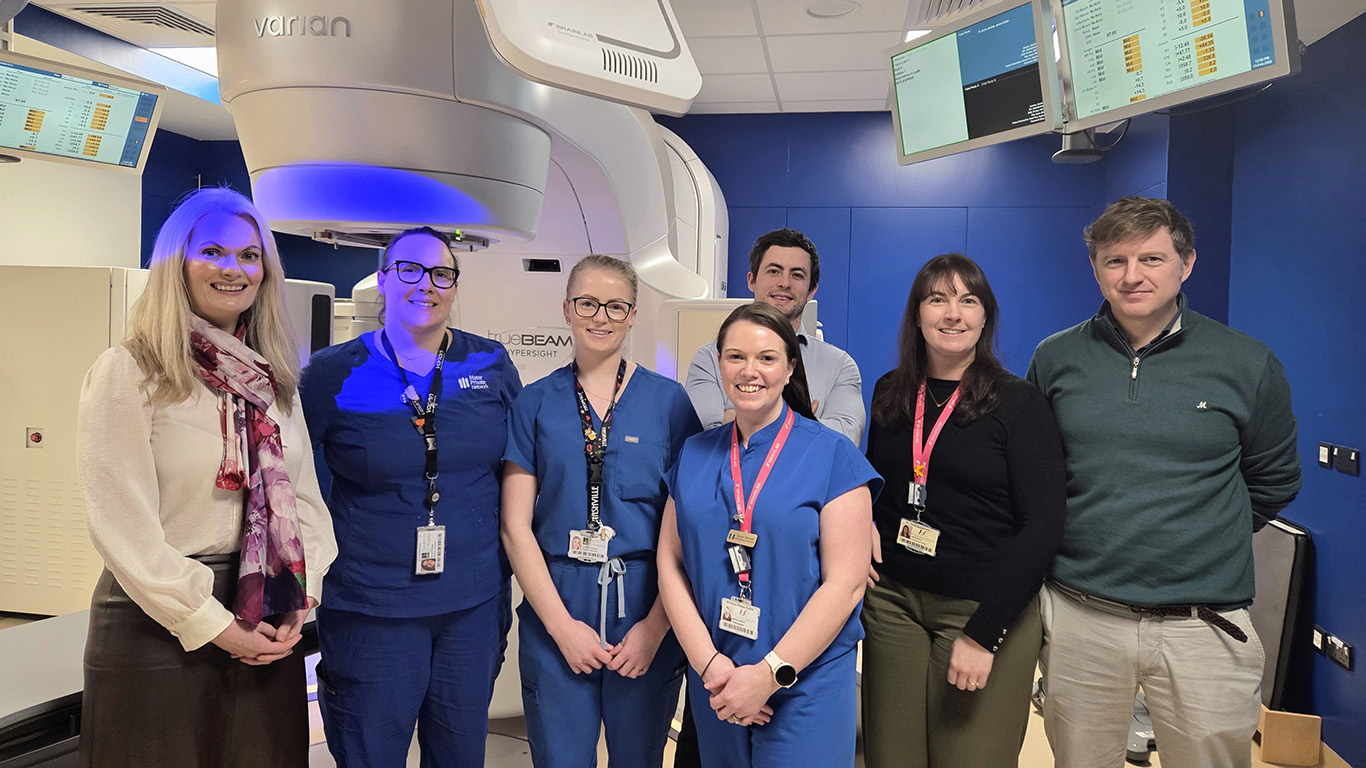Colorectal Cancer
What is colorectal cancer?
Colon cancer is cancer of the large intestine (colon), the lower part of your digestive system. Rectal cancer is cancer of the last several inches of the colon. Together, they are often referred to as colorectal cancer. They may also be referred to as bowel cancer.
There are a range of symptoms that may indicate that you have colorectal cancer, including bleeding from your rectum (back passage) and unusual weight loss. If you experience any of the symptoms of colorectal cancer, there are a range of tests and scans available to diagnose you. If you are diagnosed with colorectal cancer, treatment options include chemotherapy, radiotherapy, and surgery.
There are several factors which might increase your risk of developing colorectal cancer:
- Age: colorectal cancer is more common in people over the age of 50.
- Alcohol: this type of cancer is more common in people with a high alcohol consumption level. It is recommended to keep your alcohol intake low to reduce the risk of this form of cancer.
- High calorie diet: having a high calorie diet can contribute to obesity which has been linked to increased risk of colorectal cancer.
- Low-fibre diet: fibre helps to feed the healthy bacteria in your colon. There are multiple health benefits of a high-fibre diet, including decreased risk of multiple cancers and cardiovascular disease.
- Smoking: is most linked to respiratory cancers, but using any form of tobacco can increase your risk of multiple cancers.
- Ulcerative colitis: causes inflammation of the lining of the colon and patients with a history of this condition can be at a higher risk of colorectal cancer as a result.
- Crohn’s disease: patients with a history of Crohn’s disease or irritable bowel syndrome can also have an increased risk due to increased inflammation within the colon.
- Polyps: presence of polyps in the colon or rectum may eventually become cancerous.
What are the symptoms?
The symptoms of colorectal cancer can include:
- A change in your normal bowel motion, such as diarrhoea or constipation.
- Feeling you have not emptied your bowel fully after a motion.
- Pain or discomfort in your abdomen (tummy) or back passage.
- Trapped wind or fullness in your stomach.
- Weight loss.
- Tired and breathless (due to anaemia from blood loss).
- Rectal bleeding or blood in stools.
How is colorectal cancer diagnosed?
If you are concerned about colorectal cancer, there are several tests that your GP can carry out for you before referring you to hospital for further investigation:
Screening
Bowel screening is available through the HSE to anyone in Ireland who is aged between 59 and 69. This screening process may identify cancer before you begin to develop symptoms.
Rectal exam
In this test your doctor puts a gloved finger into your back passage to feel for lumps or swelling. This quick test may be slightly uncomfortable but does not hurt.
Faecal occult blood test
This is also referred to a stool sample. The test checks your bowel motions for tiny amounts of ‘hidden blood’. Blood in your bowel motions can be caused by bowel cancers and polyps. It is used to identify people who may be at risk of developing bowel cancer.
Blood tests
General blood tests used to check for anaemia in a patient.
If after these tests your GP feels that further testing is required, they may refer you to hospital for some of the following tests:
Left sided colonoscopy
A left sided colonoscopy is a visual examination of the inside of the rectum (back passage) and sigmoid colon (bowel). It is performed by passing a small flexible tube through the rectum into the lower left side of the colon. During the examination biopsies may be taken as necessary.
Full colonoscopy
A full colonoscopy is a visual examination of the lining of the bowel. It is performed by passing a small flexible tube through the rectum into the colon. During the examination biopsies may be taken.
Barium enema
This is a special x-ray of the large bowel. During the procedure, a mixture of barium (which shows up on an x-ray) and air is passed into the back passage using a small flexible tube. It's important to keep the mixture in the bowel until all the x-rays have been taken. The doctor can then watch the passage of the barium through the bowel on an x-ray screen and look for any abnormal areas.
Here in Mater Private Network in Dublin we offer a consultant-led Rapid Access Endoscopy service. If your GP refers you to us for diagnostic tests, you will be seen within a maximum of 10 days.
Other tests may include:
These scans will help the doctor to put a grading on the stage that the colorectal cancer is at and help them decide on the best treatment for your cancer.
What is the treatment for this condition?
Some of the possible treatments suitable for colorectal cancer include:
- Chemotherapy: medical treatment to destroy cancer cells. It may be used prior to surgery in an attempt to shrink the tumour
- Radiotherapy: uses high energy radiation beams to destroy cancer cells. It may be used before surgery in an attempt to shrink the tumour
- Surgery: the most common treatment for colorectal cancer. The affected part of the bowel is removed and any lymph nodes that are nearby.
Some people may require radiotherapy and chemotherapy following surgery as both can help to prevent recurrence of the cancer.









